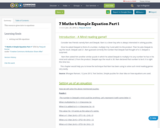
This resource gives intro to equations
- Subject:
- Mathematics
- Material Type:
- Reading
- Date Added:
- 07/26/2013

This resource gives intro to equations
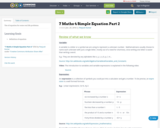
Use of equation for some real life problems.
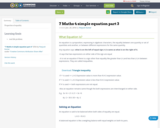
Properties of equality
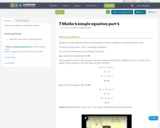
Some solved example to explain the concept

Supplementary angle, adjacent angle and linear pair
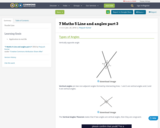
Parallel Line
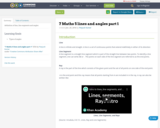
definition of line, line segments and angles
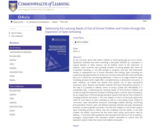
At any one time, about 300 million children of school going age are not in school. Experience indicates that when schooling is disrupted, whether by a pandemic, a natural disaster or other reasons, not all children return to the classroom. In addition, most countries have growing numbers of young people who have not completed schooling, or not well enough to progress, and who find themselves neither in employment nor in further education and training.
Open schooling can create learning opportunities for those not in school, those who left school and those who are in school but not learning effectively. There is no single model for open schooling provision which might offer a complementary or alternative curriculum, or both. However, all models can benefit from greater use of open educational resources; open, distance and flexible methods and open educational practices. In this way it is possible to address issues of access, quality and affordability in a sustainable way.
This book offers guidelines and examples that will be of use to teachers, managers, policy-makers and education leaders interested to ensure that the education system meets the needs of all children and youths.

Preparation and Properties of Aromatic Amines
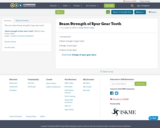
This oer is about beam strength of spur gear tooth
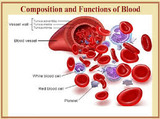
Blood : Structure and Function

Blood : Structure and Function

C Identifiers

example
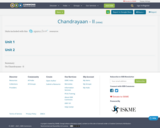
On Chandrayaan - II

An infograph on Classification of Chromatographic Methods.
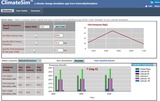
ClimateSim is a fast and simple climate modeling and simulation tool. It is a web app that is freely available to anyone interested in climate science. ClimateSim allows users to model scenarios of greenhouse gas emissions in the current century and simulates the first-order response of the earth system. ClimateSim makes climate simulation accessible in a simplified form and provides an easy-to-use simulation platform for performing virtual climate experiments. ClimateSim is primarily targeted as a science education tool for undergraduate and advanced high-school students in physics, environmental science and related courses. Instructors can use ClimateSim to illustrate climate-change concepts, demonstrate dynamic relationships between climate variables, and assign simulation-based exercises as part of their courses. It is also an appropriate and accessible tool that policymakers, journalists and others can use to get a better understanding and working knowledge of the basics of climate science.
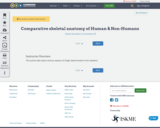
This article talks about various aspects of Origin determination from skeleton.
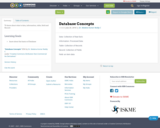
To know about what is data, information, table, field and Record
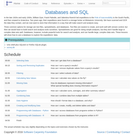
Software Carpentry lesson that teaches how to use databases and SQL In the late 1920s and early 1930s, William Dyer, Frank Pabodie, and Valentina Roerich led expeditions to the Pole of Inaccessibility in the South Pacific, and then onward to Antarctica. Two years ago, their expeditions were found in a storage locker at Miskatonic University. We have scanned and OCR the data they contain, and we now want to store that information in a way that will make search and analysis easy. Three common options for storage are text files, spreadsheets, and databases. Text files are easiest to create, and work well with version control, but then we would have to build search and analysis tools ourselves. Spreadsheets are good for doing simple analyses, but they don’t handle large or complex data sets well. Databases, however, include powerful tools for search and analysis, and can handle large, complex data sets. These lessons will show how to use a database to explore the expeditions’ data.